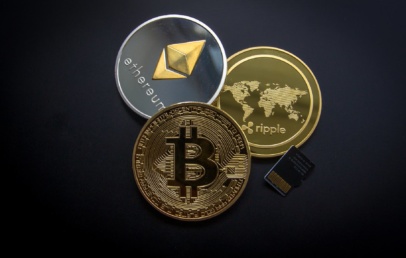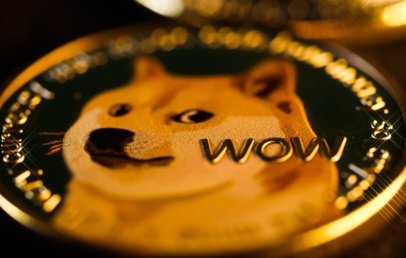Recently, Steam has announced that virtual currency will be banned from its games, putting an end to the idea that gaming assets represented by non-fungible tokens (NFTs) will one day become widespread.
The formal NFT and cryptocurrency restriction was just recently discovered by a developer working on a game that included NFTs, although it is Steam company policy. However, Steam’s rival platform, Epic, surprised everyone by announcing that they would be “open” to games employing NFTs and cryptos, taking the fight to Steam.
Now you might be wondering whether this ban will be prevalent on some other NFTs as well. Unfortunately, the answer is yes. The NFT space can be pretty dramatic every now and then, and you will find all the crypto experts talking about the same.
In October itself, OpenSea banned the NFT collection DAO Turtles because they had concerns regarding financialization. Not only that, but a few days later, they also banned Zombie Cats which was a part of the DAO collection.
The Upcoming Trend
Opensea was afraid that the DAO collection was a part of the unregistered security, and they took them off to protect their own platform. So, this calls for all the attention from the NFT buyers who might not know about these bans. You might be investing in one of those, which might cause you to face a lot of monetary loss.
So today, we will have a detailed discussion as to why this ban can increase in the near future and what you could do to avoid pandemonium. You can also change your buying strategy in an optimum manner so that the new trend does not cause any adverse impact on your profit margin.
Should We Worry About The Regulatory SEC Risk?
According to the recent research done by significant crypto experts like Giancarlo Chaux, about 63.4% of people said that they had zero worries about the SEC risks. And that is an entirely normal response because NFTs do not seem to be on the radar of the SECs. Therefore, it becomes hard to imagine that SECs might start enforcing the NFT bans.
The Changing Scenario
Now, numerous NFT projects are taking a sharp turn towards the SEC dimension. Some of them are presenting ERC tokens that could eventually be a problem. These tokens do not have much utility behind them, which is why they are sure to lose potential.
Visionary launched the fantasy startup investing in the NFT marketplace, but they were banned pretty soon because of legal problems that might have risen soon.
SEC Regulation
You must be wondering how the SEC can regulate the NFTs since they do not have many resources. They cannot see the entire market but can only regulate the significant coins. They use a policy which is known as regulation through enforcement, and they can put forward their regulatory actions against the individual defendants.
The lack of transparent laws has been a crucial factor in the astonishing rise of cryptocurrency marketplaces in recent years. That could change in the near future. The Securities and Exchange Commission (SEC) of the United States is increasingly indicating that it intends to regulate space.
Following the 2017 DAO investigation, the SEC warned that many cryptocurrencies, particularly those launched in an initial coin offering, are considered investment instruments (ICO). Security trades are heavily regulated; therefore, anyone who issues, sells or simply trades these tokens may be breaking investment rules. While technology and trends in the blockchain space move rapidly, securities rules do not.
Opens And SEC
Talking about the Opensea market, the SEC can’t go through the collectibles one by one. Especially in the case of the Ethereum NFTs, the enforcement can happen more straightforwardly. That is because 90 percent of the NFT volume comes from a single platform, and the illegal NFTs might get banned soon.
So make sure that you are investing in the correct NFTs so that you do not get kicked out of the Open sea platform. Soon enough, the SEC will give pressure on Opensea just like Coinbase and Uniswap.
Now the regulations are getting more concrete and will ban any NFT that comes near the vicinity of legal issues. That can be a problem for many investors, but this is an excellent step given that now all the available collectibles will be completely legitimate.

What Makes NFTs A Security?
So how do you understand which NFTs are at a higher risk? For that, you have to understand the factors that SEC is even looking for in the first place.
The first regulatory norm is obviously the Howey test put forward by the US Securities and Exchange Commission. The investment contract incorporates the following factors:
- Investment of money
- A common enterprise
- The collectible with the expectation of profit
- The element to be derived from the efforts of others
These factors do not mark that the project is illegal, but the NFT needs to register itself as a security. So there will be confinement as to who can buy them and the kind of information they would have to share. The risk is always lower when there is a decentralized network.
Also, if a token does not have utility behind it, there is a fair chance that it can be banned. So the tokens should provide service which is irrelevant to the monetary reward- and then only they can stay on track.
NFTs are never a guaranteed investment, and if any forum is declaring otherwise, then there is a fair chance that the specific NFT usage can be restricted.
Regulatory Risk Spectrum
This is The least you can do to understand which NFTs are safe to use and which ones are at high risk by scrutinizing the following.
- Pure art/collectibles- Most people feel like art pieces without roadmaps are pretty safe to invest in.
- DAOs with Roadmaps are a profit-making venture with no centralized team, so people investing in play-to-earn games like Axie Infinity are falling under this spectrum.
- Fractions/pfp- Even if you are buying the fraction of an art piece, it comes under security- as they are mostly treated like shares.
- Royalties and Profit sharing NFTs- These are NFTs without any utility and created solely for monetary gains- which is why they can be a tad risky.

So the next time you invest in any NFTs, make sure that they are not falling under the risk spectrum. After all, there is no use crying over spilled milk!



